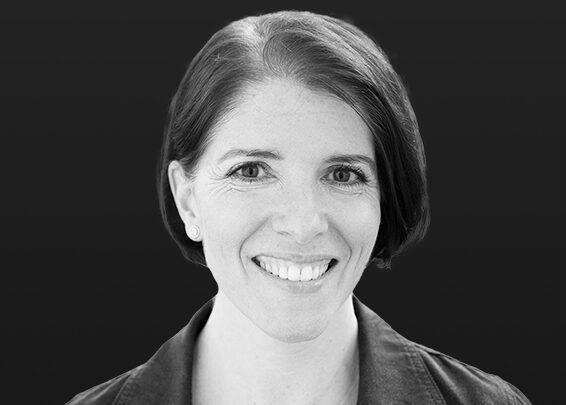5 Pathways to Sustainable Leadership | Tory Burch Foundation
5 Pathways to Sustainable Leadership
5 ways to be a sustainable leader, from The Family Van founder Cheryl L. Dorsey.
38,082 Views
3 Likes
2 min read
Link copied to clipboard
At Echoing Green, the global nonprofit I lead, we often talk about how the social entrepreneurs we support are “in it” for the long haul. Their commitment to doing the hardwork is an illustration of the lifelong leadership required to bring about dramatic and lasting social change.
No doubt, there are common qualities true leaders have that help them inspire people to support them in their work or passion. That support – the ability to learn from and lean on others – is what allows leaders to stay in the game. I personally learned this lesson when I started an organization with my friend and mentor, Dr. Nancy Oriol. In 1992, I received a Fellowship from Echoing Green which not only enabled us to launch The Family Van, a community-based mobile health unit in Boston, but also introduced me to a community of social justice leaders. Visionaries like Sara Horowitz, founder of the Freelancers Union, Wendy Kopp, founder of Teach For America, and Priya Haji, a serial social entrepreneur who understood her leadership so profoundly, each have taught me an immeasurable amount about what it takes to create the world we want to see.
These women, and others among my community of social entrepreneur Fellows, helped shed light on my path as a leader (and still do today). Strong and sustainable leadership is about evolving – keep the best parts of yourself while remaining open to change, personally and professionally.
FIVE LESSONS LEARNED
1. Establish a community of leaders – and contribute!
Whether you join a formal community of leaders committed and passionate about their own projects or establish your own, be part of a group of people who will fortify your leadership. Community is key – it’s an interconnected space that energizes you. I learned from my relationship with Dr. Nancy Oriol that a mentor can be your peer. In a humbling exchange, she once said she had learned as much from me as I had from her. I realized in that moment that mentorship comes from all angles – I’m just as likely to learn from a young social entrepreneur starting their first venture as I could from a seasoned impact investor in Silicon Valley because I’m open to hearing their wisdom and sharing my own.
2. Your background is an asset – use it!
Use what you’ve got to get what you need. Prepare yourself to hear your own wisdom –you often already have the tools that will lead you to the answer you need. Laura Weidman Powers, a 2013 Echoing Green Fellow and co-founder of CODE2040 worked for tech startups for years and saw the disparity in representation of blacks and Latinos in those spaces. She drew on this experience to help map out a program model that flips the script on the structural barriers to inclusion for these groups. Now, CODE2040 is a leading organization working to cultivate the talent of emerging and underrepresented talent. Starting with your own experiences and understanding of a space is one of the best ways to make a difference.
3. Reinvent
As leaders, often you find yourself at the front. But that doesn’t mean you can’t look around to understand what else is happening in other lanes. Be open to alternative avenues to addressing the problem you’re committed to solving. Alexandria Lee, a 2014 Echoing Green Fellow, is working to provide unparalleled academic and socio-emotional training to African American boys who have been labeled “at-risk.” Though her first school site fell through, she knew she still had a good idea on her hands. Instead of trying the same route, Alex developed a new partnership (Ember Charter School) to merge The Anew School with TFOA Charter School, an existing school (led by 2007 Echoing Green Fellow Rafiq Kalam Id-Din). And it’s not just Alexandria who will benefit from the partnership – the presence and focus of her vision will contribute to and strengthen TFOA’s wonderful existing community.
4. Listen – and get out of the way
I’ve found the best way to keep mission at the center of my work is to create feedback loops. It keeps us accountable. There’s nothing more powerful than asking your community “What do you need? And how can I help you get it?” Success doesn’t come out of operating in a vacuum. Echoing Green Fellow Elizabeth Scharpf formed her company, Sustainable Health Enterprises (SHE), because she asked questions and observed that the reason girls weren’t staying in school had so much to do with the stigma of menstruation. By asking the people most affected by a challenge, you may uncover an answer that surprises you.
5. Fail smart
Tackling failure begins with seeking to understand why and how the failure took place. Failure is by no means your ending fate – but acknowledging and understanding how it came to pass allows you to move through it. It’s in moments of personal and professional failure that we must discern who we want to be, and how we want to show up. You can’t answer that question without having the courage to be honest with yourself about what’s not working. You don’t have to do that work alone– be humble enough to ask for help– but you do have to do it.
Help an entrepreneur by upvoting

